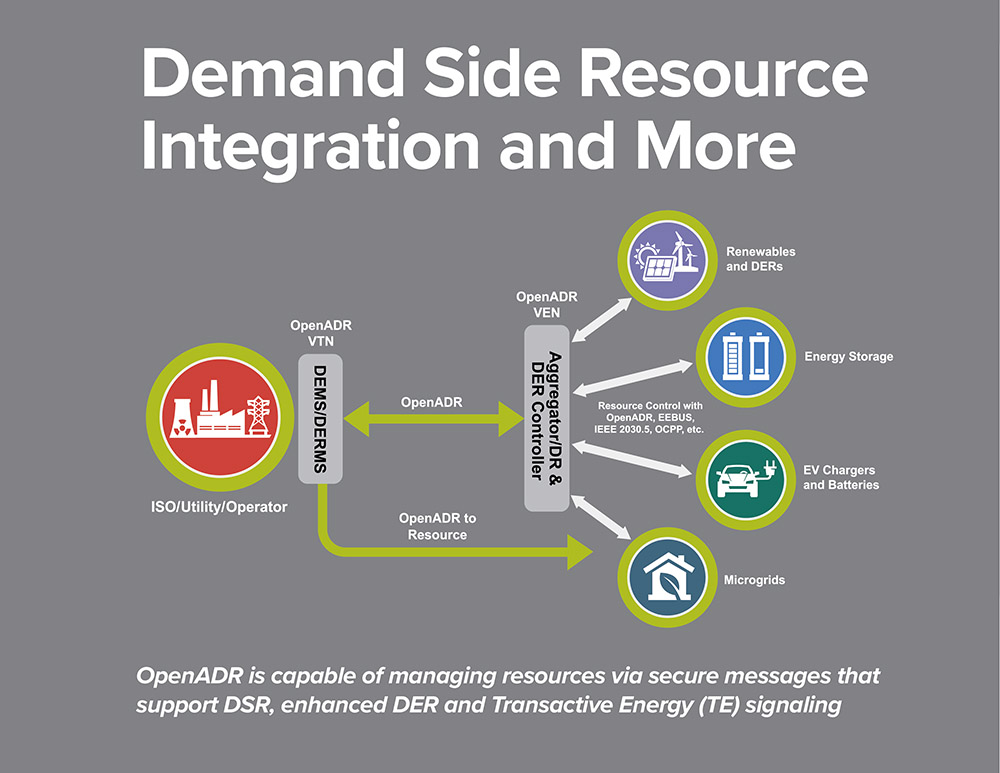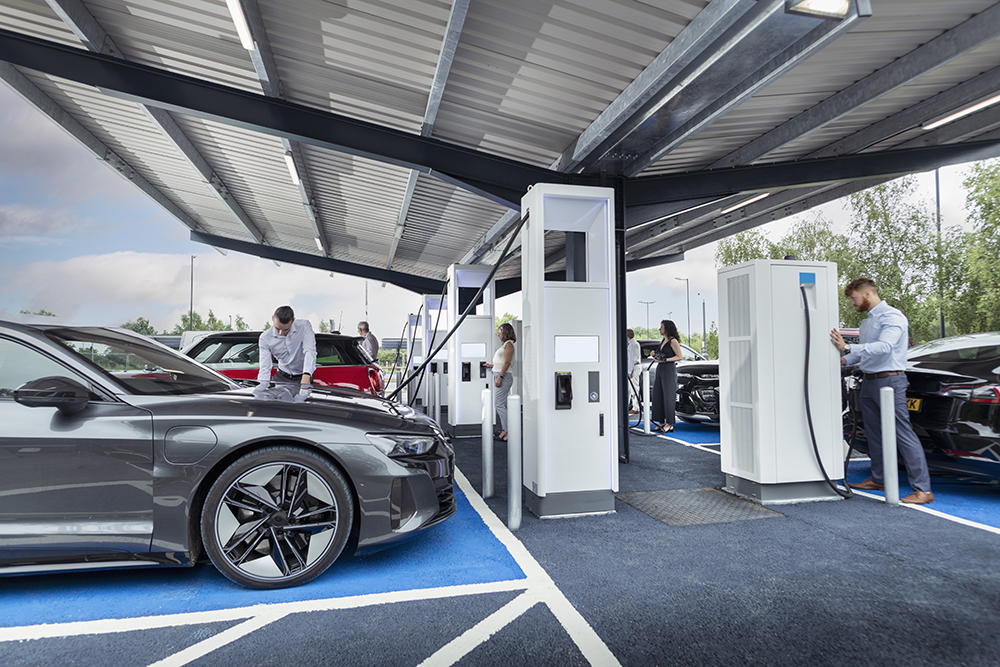The OpenADR Alliance has launched a new version of its OpenADR communications standard. OpenADR 3.0 is designed to help utilities, operators, aggregators and customers manage the growing range of distributed energy resources (DERs), which includes renewable generation, stationary energy storage, EV batteries and bidirectional EV charging stations.
As an open standard, OpenADR is designed to provide secure, fast and reliable two-way information exchange for utility applications with simple communications needs such as dynamic price and event signals. With the launch of OpenADR 3.0, device and equipment manufacturers will be able to add new functionality more easily into customer products, including EV charging stations and energy storage systems.
“OpenADR 3.0 is so easy to implement that it can readily be put into any customer device (even a WiFi light bulb) for receipt of grid signals, and also used for communication between customer devices,” said Bruce Nordman, a scientist at Lawrence Berkeley National Laboratory, and a member of the team that created OpenADR 3.0.
Several companies are now piloting the new standard. However, OpenADR 2.0 is currently used by many utilities and vendors, and there are no plans to replace it—OpenADR 3.0 is designed to complement older versions of the standard.
OpenADR certification encourages the development of standards-based products, eliminating single-vendor lock-in and ensuring interoperability. Members will soon be able to apply for OpenADR 3.0 testing and certification, but only products or systems that have been through the OpenADR Alliance Certification Program can claim OpenADR-certified status. Testing will be conducted at one of 10 approved test facilities.
“Renewable energy, along with battery storage, is providing a growing share of overall power capacity,” said Rolf Bienert, Managing and Technical Director for the OpenADR Alliance. “This means that energy companies are having to manage more decentralized and distributed energy resources, scaling operations while ensuring compatibility and interoperability.”
“OpenADR is critical in providing seamless communications between different devices and systems, and between utilities and customers,” said Bienert. “OpenADR 3.0 provides simplicity at a time when technology is becoming more complex, making energy management easier and future-proofing energy systems. It offers a new alternative using modern web service designs that are easier to use than older message-style exchange formats, while also providing added functionality.”
“As renewable generation and electrification increases with more distributed energy resources, energy flexibility and load management become even more important,” said Pacific Gas & Electric’s Albert Chiu. “With the new and improved OpenADR 3.0, we expect to see more growth in the quantity and diversity of OpenADR-certified products and solutions, which will make it easier for customers when participating in load management programs and dynamic rates.”
Source: OpenADR Alliance










































































































